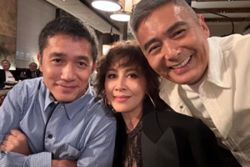An organisation fighting for justice for Philippine sexual slavery victims of the Japanese army during World War ll said that it “staunchly opposes” the planned security pact among the Philippines, Japan and the United States.
The group Lila Pilipina expressed concern about “the possibility of the Philippines being used as cannon fodder” after the Philippine government said it will study a tripartite agreement with the United States and Japan as part of strengthening the alliance.
Save 30% for ads-free and full access now!











































